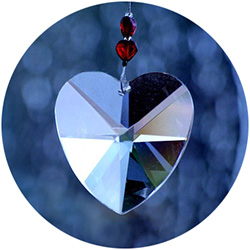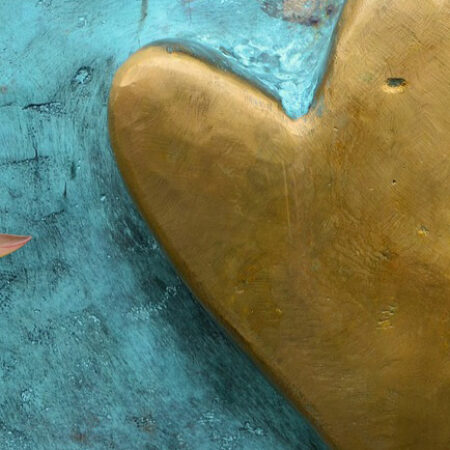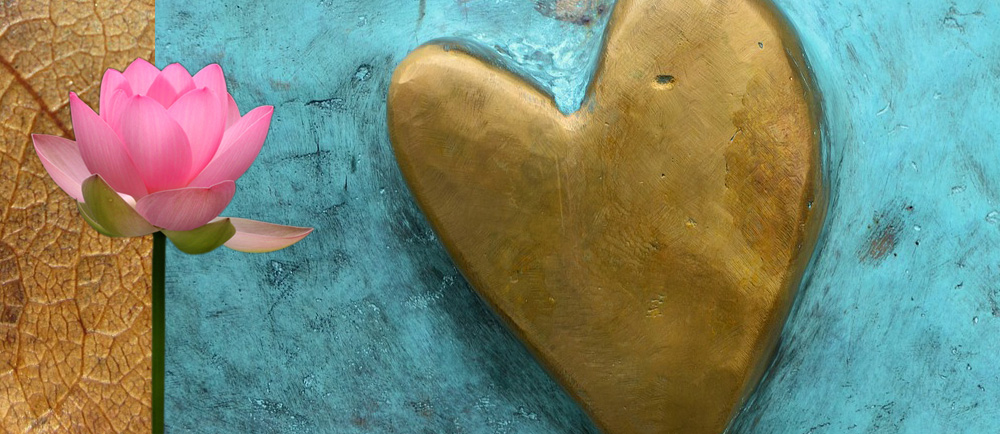let me count the ways…
by Roger Mock
Well, apparently there are four possibilities. At least in ancient Greek there are four words given for love. They are:
storge to describe familial love,
philia to describe love for a friend,
eros for sensual love
and—the word for love we hear Jesus use most often in the New Testament—agape.
Agape can be seen as God’s love or the highest form of love, though the older meaning is something like “love with a moral compass” or maybe “love that shows no preferences – unconditional love.”
 A human is like a refracting prism in the way it takes in love from Source and divvies it out in a multi-hued spectrum. Unity’s founder, Charles Fillmore, wrote that “In reality there is only one love; when man expresses divine love in limited ways he makes a separation in consciousness and his expression of love is personal instead of universal.”
A human is like a refracting prism in the way it takes in love from Source and divvies it out in a multi-hued spectrum. Unity’s founder, Charles Fillmore, wrote that “In reality there is only one love; when man expresses divine love in limited ways he makes a separation in consciousness and his expression of love is personal instead of universal.”
All of the different varieties of love can be traced back to the purer form. With eros love is experienced and approached through the senses. Today we tend to equate it entirely with sex, and to get stuck there is to miss the point and lose the trail. To the Greeks eros was about the experience of beauty and form – the realm of poets, painters, philosophers and, yes, lovers. It was about the fervent desire to reach excellence; to experience beauty and long for the deeper truth conveyed. A 19th century mystical poem by Augusta Drane spoke of this aspect of eros that beckons the soul toward a loftier goal:
There is a rapture that my soul desires,
There is a something that I cannot name;
I know not after what my soul aspires,
Nor guess from whence the restless longing came.
It is the melody of all sweet music
In all fair forms it is the hidden grace;
In all I Love, a something that escapes me,
Flies my pursuit and ever veils its face.
Philia, the love of one friend for another, is a beautiful thing but can tend toward exclusivity. You are my friend. They are not yet my friends, though they could conceivably become my friends. But those hooligans over there? Get real. That’s where the trail can get lost with philia. But as with eros, it too can lead us from the personal to the universal. The relationship of trust, honesty and sharing that is friendship works as a kind of mini classroom. Once we learn how to “do philia,” we can make the conceptual leap that the ultimate goal is to extend philia to the whole world. And so we entertain notions of universal brotherhood and global friendship as the ideal. However unattainable such a utopia may at times seem, we all know that such a “peaceable kingdom” is what we need to strive and hope for. (Isn’t that right, Mr. President?)
Storge, or familial love, teaches a similar lesson. We have a bond with family that is simply a given. Family is family. It’s different from friendship. We may have little in common with a sibling in terms of our likes and dislikes and proclivities, but the family bond remains for us unless that deeper trust is severed by some kind of “unforgivable” behavior. Follow the path of love and forgiveness, though, and we can make that leap to a more global perspective.
Eros, philia and storge will all lead us back through the prism of human experience to that purest form of love—agape—if and when we choose the right paths along the way and don’t allow ourselves to be waylaid by those dead ends of lust or exclusivity or the holding of grievances. It’s quite a brilliant plan, really, this school of love that is the human journey. The dead ends are all part of the plan, I think, and we all know them well. They tell us, “Don’t get stuck here. Let go and surrender a little more. Choose a yet deeper love.” Don’t let the prism become a prison.
Jesus said, “Seek and ye shall find. Knock and the door shall be opened unto you.” Just keep following that bread crumb trail that Love has laid out for us and agape is what will be revealed. A Course in Miracles calls it a “journey without distance” because it’s already true right now. It’s not about striving for and ultimately achieving perfection at some distant finish line. That undiluted, full strength agape love is part of you now. It is you, though you are experiencing it stepped down and refracted through the prism of human experience.
Here’s to the journey, the journey without distance.
love and light,
Roger




2 Comments
Thanks. A beautiful piece. Very helpful to feel the different ways love expresses itself.
Thank you so much!
Peace and Blessings, Roger
Commenting has been turned off.